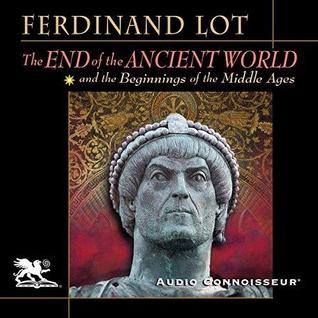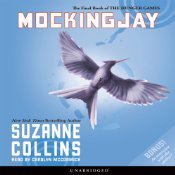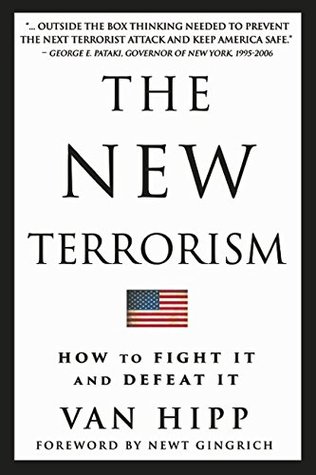4 out of 5 stars ****
Copious and comprehensive describes Ferdinand Lot's The End of the Ancient World and the Beginning of the Middle Ages. The scope of information over hundreds of years reaches back into ancient history to compare the advancements, artistry, and lack thereof through the ages among many civilizations in the known world; basically Asia, Europe, and North Africa. Charlton Griffin, the narrator, uses just the right amount of snobbery in his articulation of events and the arts that demarcate the Ancient from the Middle Ages.A great historian fascinated with the decline of the Roman Empire and the rise of Medieval times, Lot, for the first time, reveals the reasons Rome fell other than political and military. With perfect diction and pronunciation, Griffin explains that the mere size of the Roman Empire, with its asymmetrical demands, lead to the wealth transferring from the West, the needy, to the East, the providers. To meet the needs of the poor, increased taxation of that population only leads to despair and hopelessness. Suffice it to say, such a civilization is depressed and vulnerable to barbarian invasion.Lot describes the barbarians and the existing empire through their architecture, literature, paintings, sculpture, geography, politics, social structure, linguistics, belief systems, as well as military prowess. A marked erosion of the pure art form becomes evident when a practical approach to life becomes more universal as wave after wave of marauders disturb the establishments of an anemic society. In some cases, the conquerors allow the existing social structures to remain for better compliance by subjects to their reign. In many other cases, the invaders impose their own customs upon the people and this change is responsible for furthering the distance between progress and stagnation.This reader finds the subject of this book most interesting because the details of past civilizations are repeating in today's world. The trend of blossoming in a free society is evident more than it is in a suppressed one. Even in a strong, stable society, there are pitfalls that slowly wear away the best accomplishments. The characteristics about which Lot writes are prone to the flaws of man. The arts suffer, the military weakens, the economy is filtered through the greedy, and individuals are taxed into despair. The government must assert more power over the governed in order to make ends meet in the meantime. The powers that be in the realms of religion act in the same manner as the secular powers for preservation's sake. A book that eloquently shows the reader outcomes from past mistakes is necessary if a society desires to prevent complacency and rigidity in the extremes that lead to darker ages in the future.
5 of 5 stars *****
This devotional I read and studied over seven weeks with a men's ministry, The Herd, at my church. The Herd met to discuss each chapter and its significance every Wednesday evening. The rest of the week was spent devoting a portion of each day reading the chapters and suggested scriptures after praying to establish a connection with God. This practice helped me walk with the Holy Spirt on a daily basis. The outcome gave me a peace of mind that I could not achieve had I not prayed. The trials and tribulations still occurred but I tolerated and faced those moments without the resistance and friction that usually accompanied them.
I pulled another book off of my "unread" bookshelf as I was in the middle of this devotional reading and it turned out to be another devotional series, A Call to Christian Patriotism; only this book's subtitle was, A Weekly Devotional Essay Series. The daily and the weekly devotionals supported each other as I put action to the assignments that I created. My daily prayer focused my weekly Christian patriot application as I engaged in Gospel conversations with people spreading the Word which included America's foundation documents, The Declaration of Independence and the US Constitution.
The Call to Follow Christ came with a CD, music by Damaris Carbaugh, to enhance the book's messages. Music expressed each lesson so beautifully with its lyrics and melody. The experience was one I enjoyed so much that I noticed my interests changed over the seven weeks toward supportive choices that maintained a practice yielding a more joyous life and fuller relationship with God.
4 out of 5 stars ****
This third book of the Hunger Games holds my interest to the end. I watch The Hunger Games on TV the day before I finish this novel and it refreshes my memory about certain qualities the characters possess. Suzanne Collins has a way of making the reader feel for her characters. This book is darker than the other two and it surprises me when a touching moment arises in the end. The gist of Mockingjay is struggle after achievement of the impossible only to be faced with despair pre-renewal. The dystopian genre is fraught with young heroes who experience death of family and friends throughout the story. The heroes, themselves, then prepare for their own demise in a realistic, practical frame of mind. It is cold and so different from the Romance novels that are so popular. The thread of a romance appears in this trilogy but one would not call it romantic. The end is a well crafted reflection of the story that evokes an honest range of emotions from those rapt by the tale.
4 out of 5 stars ****
An intelligent account of who we are as America compared to the rest of the world. The greatest nation on Earth on a decline related to politics, economics, and military strength is also subject to the heart of its people; the soul of America. This slip in world stature is due to many variables and this author astutely describes America's situation.The New Terrorism is not a negative book, even though the current trends of change suggests that to be the case. On the contrary, the subtitle suggests optimism, How to Fight It and Defeat It.
Van Hipp, the author, is fully capable of writing such a book because of his position as Chairman of American Defense International, Inc., and accomplished history over the past 25 years that involve him in American security and international policy at the highest levels. The End Notes at the back of the book reveal the comprehensive research that back up every statement made throughout the book. This lends credence to the veracity of each scenario in all the chapters. A glance at the table of contents tells the reader that he/she is about to embark on a significant education about matters that keep America free and prosperous; but more importantly, Van Hipp truthfully explains just who America is in this day and age of challenges from foreign ideologies and manipulated information. A cogent approach to meet these challenges starts with the common sense approach that utilizes the best of America, its freedom-loving people.
My First Edition, Feb. 25, is published by Countinghouse Press, Inc.. I notice a few errors in the editing and format spacing. These inconsistencies, in no way, detract from the message of this book. The information on its pages is most current and worthy to update everyone to the threats which America faces, now, and in the future.



